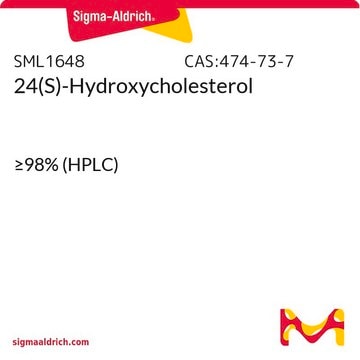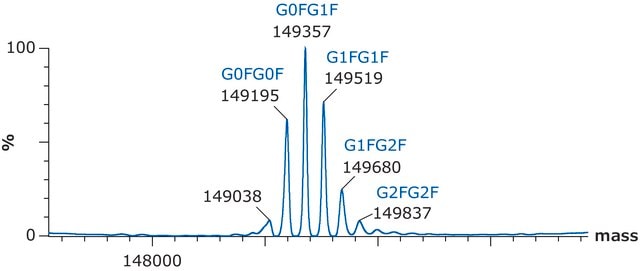PZ0190
Avasimibe
≥98% (HPLC)
Synonym(s):
CI-1011; PD 148515; [[2,4,6-tris(1-methylethyl)phenyl]acetyl]-, 2,6-bis(1-methylethyl)phenyl ester] sulfamic acid
About This Item
Recommended Products
assay
≥98% (HPLC)
form
powder
color
white to tan
solubility
DMSO: ≥40 mg/mL
relevant disease(s)
Alzheimer′s disease; cardiovascular diseases
storage temp.
room temp
SMILES string
CC(C)c1cc(C(C)C)c(CC(=O)NS(=O)(=O)Oc2c(cccc2C(C)C)C(C)C)c(c1)C(C)C
InChI
1S/C29H43NO4S/c1-17(2)22-14-25(20(7)8)27(26(15-22)21(9)10)16-28(31)30-35(32,33)34-29-23(18(3)4)12-11-13-24(29)19(5)6/h11-15,17-21H,16H2,1-10H3,(H,30,31)
InChI key
PTQXTEKSNBVPQJ-UHFFFAOYSA-N
Application
Biochem/physiol Actions
Legal Information
Storage Class
11 - Combustible Solids
wgk_germany
WGK 3
flash_point_f
Not applicable
flash_point_c
Not applicable
Certificates of Analysis (COA)
Search for Certificates of Analysis (COA) by entering the products Lot/Batch Number. Lot and Batch Numbers can be found on a product’s label following the words ‘Lot’ or ‘Batch’.
Already Own This Product?
Find documentation for the products that you have recently purchased in the Document Library.
Articles
Discover Bioactive Small Molecules for Lipid Signaling Research
Our team of scientists has experience in all areas of research including Life Science, Material Science, Chemical Synthesis, Chromatography, Analytical and many others.
Contact Technical Service








